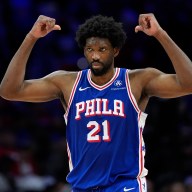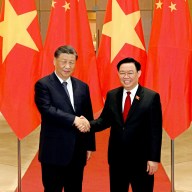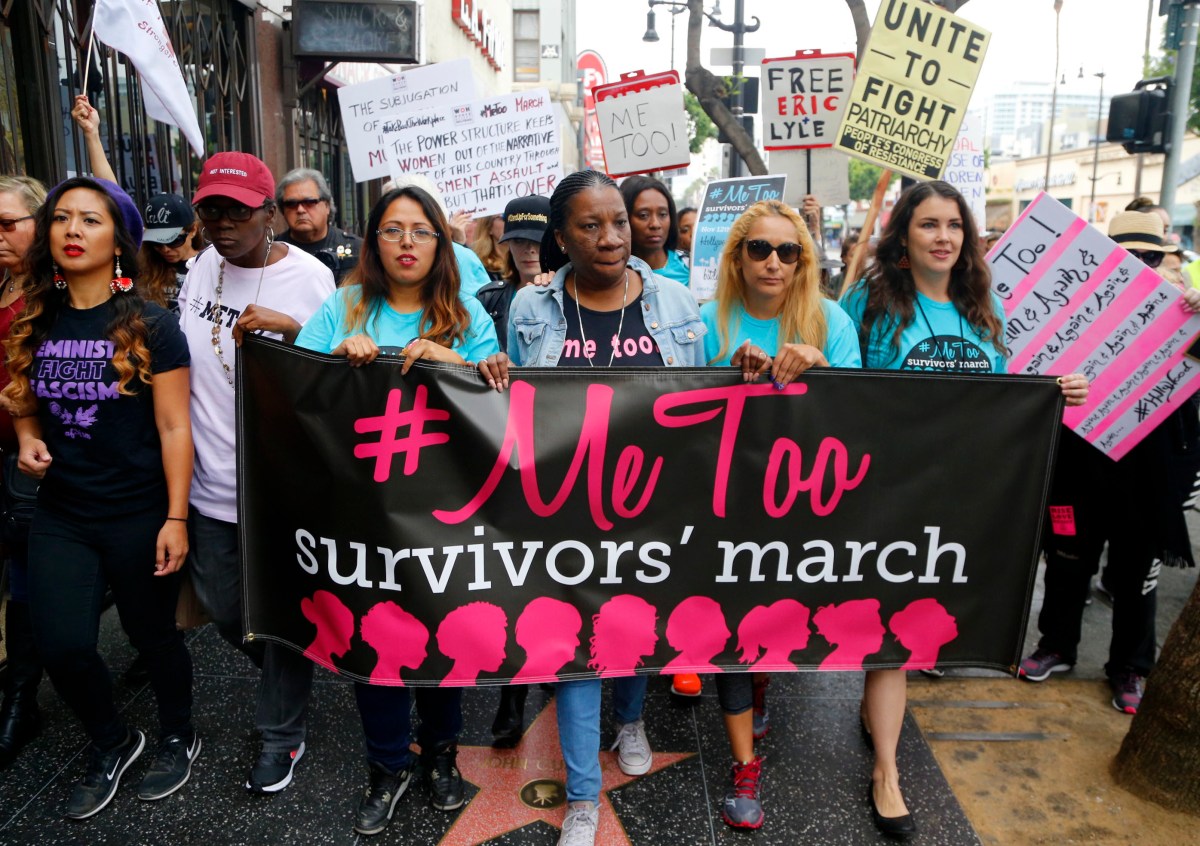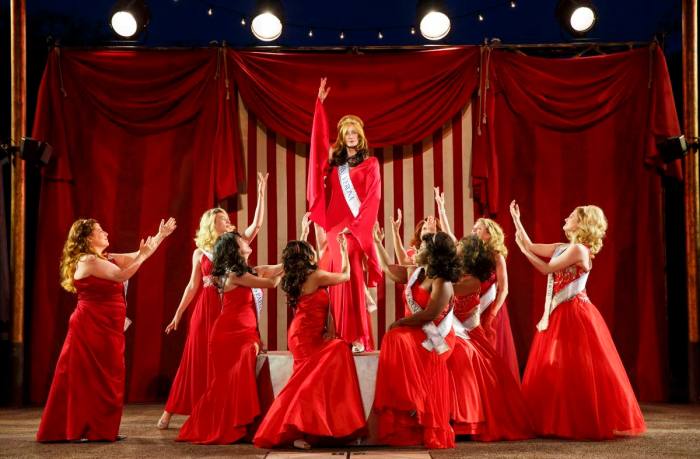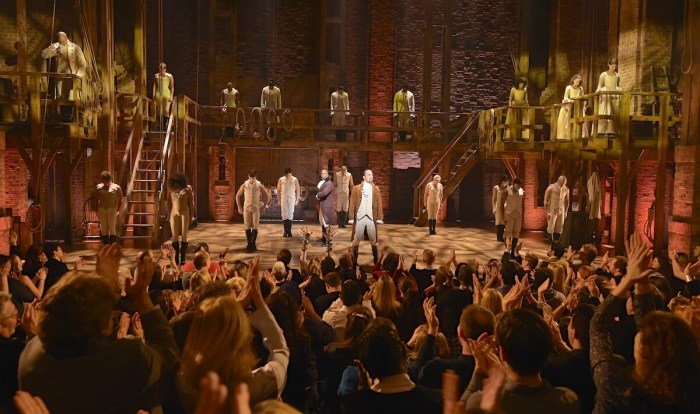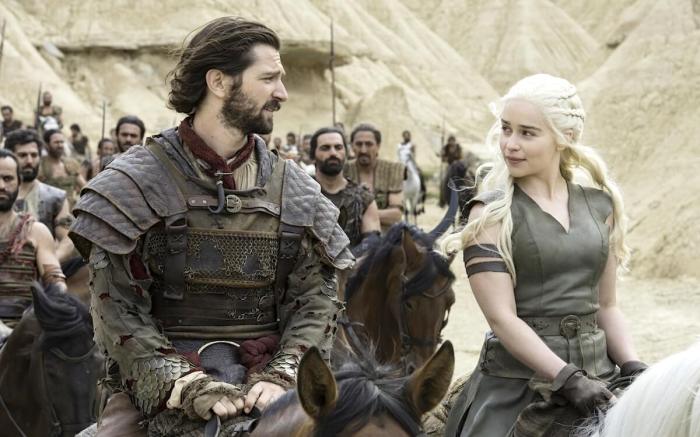Natasha, Pierre and the Great Comet of 1812 has been evolving on the fringes of Broadway since 2012, but its debut at the Imperial Theatre has finally arrived. With a score that blends elements of rock musicals, Russian folk music and even a little opera (Josh Groban co-stars), the show tells the story of star-crossed love based on a slice of “War and Peace.” So far, so Broadway, but there’s a unique intimacy to the show, too. The musical, set in Russia, begins with a round of pierogies for the audience, a portion of whom actually sit onstage; the actors also move through the aisles. But what’s the story really about? We spoke to the musical’s young lovers, Denee Benton (naive teen Natasha) and Lucas Steele (bad boy Anatole), to get to the heart of “Great Comet.” “Great Comet” is a love story, which may not be the first thing people think of when you say “War and Peace.” First of all, would you call it a love story?
D: I heard Dave [Malloy, creator] describe it once that there’s this girl that’s having her own love triangle, and then Pierre’s love story with his existential crisis. [Laughs] I think that’s accurate. From Natasha’s perspective, it’s as much a coming-of-age story. But I’d say there’s definitely a love story element to it, you can tell when teenagers come see it and they squeal. It’s Natasha’s first love, so I think to some extent her actions and reactions are painfully relatable to anyone, in any time, throughout history. Did either of you have first loves where it was like “I would die for you!”? L: I don’t know that I had an experience this dramatic or filled with as much manipulation. But the thing about this that speaks to a lot of people is that it’s kind of a soap opera. Tolstoy of course has put all of these other world-conscious messages in there, but to sell something as successfully as this story has over the years, you need both elements. D: In our sort of privileged world, most 16-year-olds aren’t being asked to marry someone and make a decision that will affect the rest of their lives. So as much as I had sweeping crushes like this, I knew that my family’s ruin wasn’t waiting around the corner if I chose someone else. Natasha, like, feels that way about everything: She’s that in love with the moon, with Andrey, with Anatole. I was definitely that 16-year-old (and I’m kind of that way now). Like: This is the best opera ever! This is the best flower ever! Anatole is the other man — how do you address that challenge of creating compassion for him?
L: I approach him from the point of view of being carefree. His actions are rather despicable, but he’s not conscious of them. He’s not super aware of anyone’s feelings but his own. He goes after whatever he thinks is beautiful, whatever he thinks he will derive pleasure from. That’s what I use to keep him from the sinister place. Having a wonderful costar to fill every moment with what needs to happen for there to be this believable connection between them is important for this idea that he’s not just in it to conquer something, that he actually has feelings about this, though they’re very misguided. D: I really like that about Tolstoy, because he creates people. Even when you look back at the people who have hurt you, you can remember wonderful things about them. Someone can ruin your whole life and you can still remember a time you laughed, and that’s complicated. And that’s what’s really great about this story. L: It’s also very interesting, the different nights, I very much get a sense of what crowds think Anatole is amusing and what crowds feel threatened by him. So if people are threatened, I need to work a little harder to make him seem likeable. And the ones that find amusement in it, I can lean a little more into “he’s doing something wrong.” But again, it’s always motivated by the fact that he is in love — or he thinks he’s in love. Why do you think it’s such a time-tested tale that girls just can’t resist the bad boy?
D: I personally have always found the bad boy a little overrated. But for Natasha, I think he’s new, he’s confident, it’s her first time coming out in society and he’s paying so much attention to her. Andrey’s a sober man. [Anatole] is fun, he’s wearing these bright, sparkly things. You know? Someone who knows what he wants, that’s an attractive quality. L: I’ve observed that people are attracted to people who withhold things from them, then they want something from them. If that equates to bad boy, I think there’s somehow a relationship between those two. But humans are complex, and it’s hard to know what drives us. Lucas, you’ve been with the show since the start, and Denee, you just joined. How did you work together to create the chemistry that’s necessary to propel the drama and romance of the whole show? D: It was helpful to have people who knew the essence of the story so well. I got to bring my imagination, but the world was already carefully constructed, and I found that comforting because the role was challenging on its own. It was nice to enter a world where the relationships were very clear. Lucas knew his character so well that it was easy for me to find my place. L: She’s a wonderful actress, she’s open to understanding the world and embracing it. It helped that we had Boston to get to know each other, and our rehearsal process here, and we both had our moments of “what the hell is going on,” and dealing with that, and there are a lot of similarities between us. That’s what I always use to tap in, when I need to fall in love with somebody, I find all of the things that I recognize as my own. Perhaps that makes me a narcissist. [Laughs] Lucas, you also got to create a new dynamic with your latest brother-in-law in the play, Josh Groban, who’s making his Broadway debut. What was that like
L: Josh is a wonderful example of somebody who has stayed very grounded in his reality, which is one that can turn you on your head, to become successful at such a young age, in such a large way. I am continuosly surprised at how much of a regular guy he is and how little ego there is, and how he’s willing to embrace what this piece is. He’s game for it, and it’s a pleasure. It’s a tricky thing with Anatole, because he’s got two main relationships going on: There’s the romance and the bromance. The bromance unfortunately is much less genuine and there’s much more manipulation going on there than there is with [Natasha]. And it’s important to me that we be able to have some semblance of a relationship, and he’s been very good about helping cultivate that in a limited amount of time. And I’m hard-pressed to think of any other person that’s as known as he is, that could sell tickets the way he is, who actually has the skill set to pull off this role. D: Oh yeah! If he’d gone into an audition and wasn’t Josh Groban, just another actor, I think he still would have had a really good shot at it. He already plays the piano and has the skill set for the accordion, and has a connection to Pierre in their insecurities. It’s kind of great. I think a lot of shows aren’t as lucky to have a celebrity who’s willing to really transform in order to do well. Denee, you stepped into a role originated by Phillipa Soo, who went on to star in “Hamilton.” Was there added pressure?
D: I really wanted to see it but I couldn’t get tickets! [Laughs] The pressure that this role provides on its own is enough without anyone coming before. I think I was mostly comforted by the fact that someone my age had already successfully done it. I was like: OK, it’s possible. So it was helpful to get to know the role and not be like: This is my big break! Because that would have caused too much panic. But it helps that I was never made to feel like a second pick; I was embraced. Lucas, the first day, was like: “Watch the stairs, take care of your knees!” Little things like that go a long way when you’re new to something that’s so intimidating. L: Her coming in at this level, when it’s so much larger than it was before, physically what is required and the stamina that’s required, she’s faced it like a champ. And in no way to detract from anyone who came before, she’s certainly come in at the most epic version of this production. And to take that on when it’s one of your first significant jobs? It’s incredible. D: I call my mom crying a lot. But we’ve made it.
This is such a unique show: the staging, the score, the story. What’s the one moment that gets you really excited every night?
L: It’s right before the show starts. We come out and we hand people in the audience some piroshkis to eat, and we give them the drill that there will be actors moving around. Right after that, before the show starts, there’s this moment where it says: “Enjoy the show.” And all of the chandeliers, they rise. I’m supposed to turn and go to my position, but I stand for a second and I watch because I know how unique this experience is on Broadway. It most likely will never happen again. It’s symbolic of what’s to come over the next three hours and how we are going to do our best to raise you and enlighten you. D: “Balaga” is the most exhausting thing ever. But somehow every night, somewhere in the middle of it, I forget I’m doing it and start having fun. There’s the chaos section in the middle where I smash the painting over [Balaga’s] head and we’re all dancing together and the lights are completely up. You just shatter the fourth wall. It’s a special moment as an actor to lose yourself. And that happens for me there. L: That’s like a 15-minute section, it’s the hardest I’ve ever had to do. Every night I’m like, “How is this going to happen?” But I think because we are all out there, we all rally in this crazy way. D: We look at each other. There are moments when I lock eyes with [Lucas] and just feed off the energy.
For the rest of the best entertainment in New York City this season, visit ourWinter Arts Guide
Meet Broadway’s new star-crossed lovers in ‘Natasha, Pierre and the Great Comet of 1812’
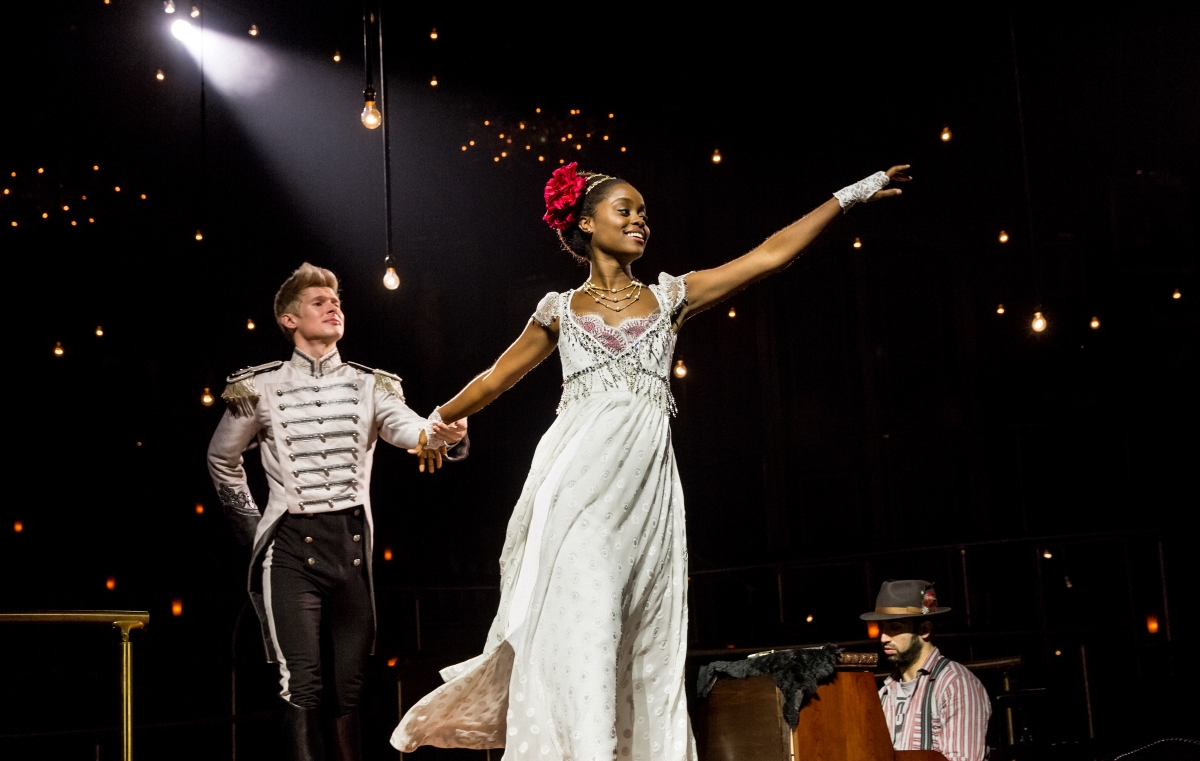
Joan Marcus







